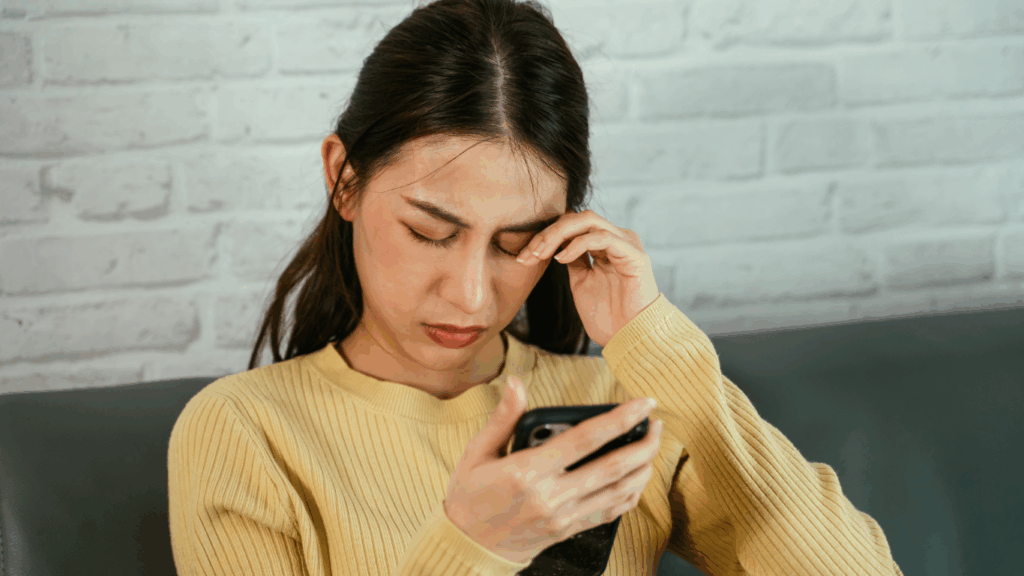What we’ll cover in this article:
- What Anxiety and Depression Can Feel Like
- When Should You Consider Therapy?
- How Therapy Helps You Heal
- Exploring Therapy in New York
- Taking That First Step
- Helpful Resources
What Anxiety and Depression Can Feel Like
If you’ve been feeling overwhelmed, stuck, or unlike yourself, you’re not alone. Anxiety and depression are among the most common mental health challenges – and they show up differently for everyone.
For some, anxiety might feel like a constant sense of worry, racing thoughts, or that uneasy feeling in your chest that never quite goes away. For others, depression can feel like a heavy fog, where even simple tasks like getting out of bed or answering a text can feel exhausting.
These conditions are more than just occasional stress or sadness. They can affect how you think, feel, and function day to day. And when anxiety and depression overlap – as they often do – it can feel especially confusing and difficult to manage on your own.

When Should You Consider Therapy?
It’s common to wonder, “Is this serious enough to talk to someone?” The truth is, there’s no “right” threshold for seeking help. But there are signs that it might be time to reach out to a therapist, especially if:
- Your symptoms have lasted more than two weeks
- You feel overwhelmed more often than not
- You’ve lost interest in things that used to bring you joy
- You’re experiencing changes in sleep, appetite, or energy
- You feel isolated or disconnected from others
- You’ve had thoughts of self-harm or suicide
Even if your symptoms feel manageable, therapy can still be a valuable space to gain clarity and support before things feel more intense.
How Therapy Helps You Heal
Therapy isn’t about “fixing” you – it’s about helping you reconnect with yourself, understand what you’re feeling, and develop healthier ways of coping. Whether you’re dealing with anxiety, depression, or both, therapy can offer:
A safe, non-judgmental space
Where you can talk honestly about what’s going on without needing to have all the answers.
Tools to manage your emotions
Learn practical skills to cope with anxious thoughts, low moods, and everyday stressors.
Support during hard times
Therapy gives you a consistent space to feel heard, understood, and supported as you work through challenges.
A deeper understanding of yourself
Explore patterns in your thoughts and relationships that might be holding you back – and discover new ways forward.
Exploring Therapy in New York
New York is full of resources – but it can feel overwhelming to know where to start. Here are a few options to consider:
- Individual Therapy
One-on-one sessions focused on your goals, challenges, and healing journey. - Group Therapy
A supportive space to share and learn from others who are navigating similar experiences. - Online or Teletherapy
If you’re juggling a busy schedule or prefer the comfort of home, virtual therapy is a flexible option. - Specialized Care
Some therapists (including myself) offer support specifically for anxiety, depression, and midlife transitions.
Whether you’re seeking therapy in person or online, finding the right fit is key. Trust your instincts – your therapist should feel like a partner in your growth, not a stranger behind a clipboard.

Taking That First Step
Reaching out for help can be scary. But it’s also incredibly brave.
If you’re struggling with anxiety and depression in New York and wondering where to turn, Laurie Sloane offers a compassionate, thoughtful approach to therapy that puts you at the center. Whether you’re ready to dive into the work or just want to ask some questions, your journey is valid – and it’s okay to start small.
You deserve to feel better. Therapy can help you get there.
Helpful Resources
If you or someone you know is in crisis or needs additional support, here are some helpful links:
- Mount Sinai Behavioral Health – Programs for anxiety and depression
- NYC 988 Mental Health Support – 24/7 phone, text, and chat support
This article is intended for informational purposes only and is not a substitute for professional diagnosis or treatment. If you’re experiencing a mental health emergency, please seek immediate help from a crisis line or healthcare provider.
Laurie Sloane is a psychotherapist with over 30 years of experience supporting women through life transitions, relationship changes, and identity work. Her approach focuses on depth, connection, and lasting personal transformation.
To book a consultation with Laurie, please click here or call (516) 697-7252. Read more about individual therapy options here.


